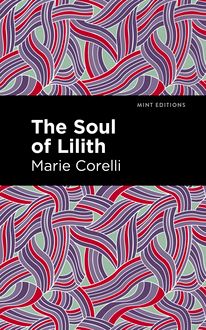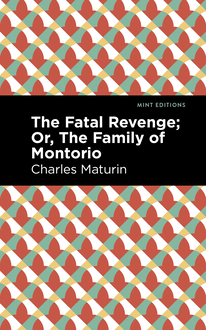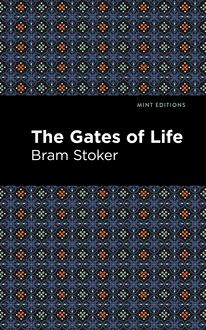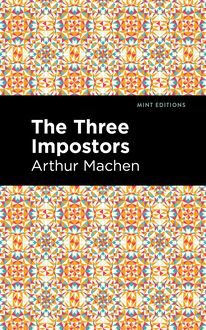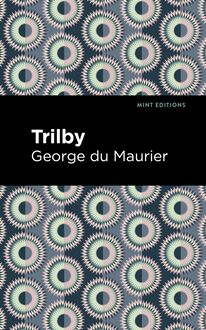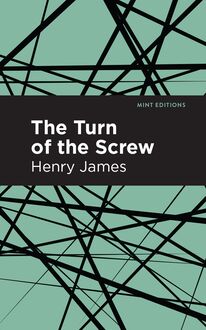-
 Univers
Univers
-
 Ebooks
Ebooks
-
 Livres audio
Livres audio
-
 Presse
Presse
-
 Podcasts
Podcasts
-
 BD
BD
-
 Documents
Documents
-
- Cours
- Révisions
- Ressources pédagogiques
- Sciences de l’éducation
- Manuels scolaires
- Langues
- Travaux de classe
- Annales de BEP
- Etudes supérieures
- Maternelle et primaire
- Fiches de lecture
- Orientation scolaire
- Méthodologie
- Corrigés de devoir
- Annales d’examens et concours
- Annales du bac
- Annales du brevet
- Rapports de stage
La lecture à portée de main
Vous pourrez modifier la taille du texte de cet ouvrage
Découvre YouScribe en t'inscrivant gratuitement
Je m'inscrisDécouvre YouScribe en t'inscrivant gratuitement
Je m'inscrisEn savoir plus
Vous pourrez modifier la taille du texte de cet ouvrage
En savoir plus

Description
The Soul of Lilith (1892) is a novel by Marie Corelli. Published at the height of Corelli’s career as one of the most successful writers of her generation, The Soul of Lilith combines science fiction, spirituality, and romance to tell a cautionary tale of the limits of knowledge and faith. Due for reassessment by a modern audience, Marie Corelli’s work—which has inspired several adaptations for film and theater—is a must read for fans of early science fiction. “‘Fools—fools all!’ he murmured. ‘Thieves steal, murderers slay laborers toil, and men and women lust and live and die—to what purpose? For what progress? For what end?’” Having recently arrived in London, scientist El-Râmi Zarânos is disillusioned with the vision of progress presented by the people of the supposed greatest city in the world. To settle his restless mind, he devotes himself to his most daring experiment yet: the preservation of the body of a dead woman, enabling him to communicate with her soul. Despite his success, he struggles with the judgement of those who condemn his work, as well as with the ultimate goal of his project. When a Cypriot monk arrives to assess his work, he tells El-Râmi that love will one day free the soul he has captured, that his experiments run counter to the will of God. Nevertheless, the scientist remains focused on completing his life’s work, whatever the cost. Addressing philosophical, scientific, and religious themes, The Soul of Lilith is a moving work of fiction which asks important questions about an emerging modern world. With a beautifully designed cover and professionally typeset manuscript, this edition of Marie Corelli’s The Soul of Lilith is a classic work of English science fiction reimagined for modern readers.
Sujets
Informations
| Publié par | Mint Editions |
| Date de parution | 11 mai 2021 |
| Nombre de lectures | 0 |
| EAN13 | 9781513293332 |
| Langue | English |
| Poids de l'ouvrage | 2 Mo |
Informations légales : prix de location à la page 0,0500€. Cette information est donnée uniquement à titre indicatif conformément à la législation en vigueur.
Extrait
The Soul of Lilith
Marie Corelli
The Soul of Lilith was first published in 1892.
ISBN 9781513290485 | E-ISBN 9781513293332
Published by Mint Editions®
minteditionbooks.com
Publishing Director: Jennifer Newens
Design & Production: Rachel Lopez Metzger
Project Manager: Micaela Clark
Typesetting: Westchester Publishing Services
C ONTENTS I NTRODUCTORY N OTE T HE S OUL OF L ILITH, V OLUME 1 I II III IV V VI VII VIII IX X XI XII XIII XIV XV XVI XVII XVIII XIX T HE S OUL OF L ILITH, V OLUME 2 I II III IV V VI VII VIII IX X XI XII XIII T HE S OUL OF L ILITH, V OLUME 3 I II III IV V VI VII VIII IX X XI XII
I NTRODUCTORY N OTE
T he following story does not assume to be what is generally understood by a “novel.” It is simply the account of a strange and daring experiment once actually attempted, and is offered to those who are interested in the unseen “possibilities” of the Hereafter, merely for what it is,—a single episode in the life of a man who voluntarily sacrificed his whole worldly career in a supreme effort to prove the apparently Unprovable.
THE SOUL OF LILITH VOLUME 1
I
T HE theatre was full,—crowded from floor to ceiling; the lights were turned low to give the stage full prominence,—and a large audience packed close in pit and gallery as well as in balcony and stalls, listened with or without interest, whichever way best suited their different temperaments and manner of breeding, to the well-worn famous soliloquy in “Hamlet”—“To be or not to be.” It was the first night of a new rendering of Shakespeare’s ever puzzling play,—the chief actor was a great actor, albeit not admitted as such by the petty cliques,—he had thought out the strange and complex character of the psychological Dane for himself, with the result that even the listless, languid, generally impassive occupants of the stalls, many of whom had no doubt heard a hundred Hamlets, were roused for once out of their chronic state of boredom into something like attention, as the familiar lines fell on their ears with a slow and meditative richness of accent not commonly heard on the modern stage. This new Hamlet chose his attitudes well,—instead of walking or rather strutting about as he uttered the soliloquy, he seated himself and for a moment seemed lost in silent thought;—then, without changing his position he began, his voice gathering deeper earnestness as the beauty and solemnity of the immortal lines became more pronounced and concentrated.
“To die—to sleep;—
To sleep!—perchance to dream; ay, there’s the rub.
For in that sleep of death what dreams may come
When we have shuffled off this mortal coil
Must give us pause…”
Here there was a brief and impressive silence. In that short interval, and before the actor could resume his speech, a man entered the theatre with noiseless step and seated himself in a vacant stall of the second row. A few heads were instinctively turned to look at him, but in the semi-gloom of the auditorium, his features could scarcely be discerned, and Hamlet’s sad rich voice again compelled attention.
“Who would fardels bear.
To grunt and sweat under a weary life.
But that the dread of something after death.
The undiscovered country from whose bourne
No traveller returns, puzzles the will
And makes us rather bear those ills we have
Than fly to others that we know not of?
Thus conscience does make cowards of us all;
And thus the native hue of resolution
Is sicklied o’er with the pale cast of thought;
And enterprises of great pith and moment.
With this regard, their currents turn awry
And lose the name of action.”
The scene went on to the despairing interview with Ophelia, which was throughout performed with such splendid force and feeling as to awaken a perfect hurricane of applause;—then the curtain went down, the lights went up, the orchestra recommenced, and again inquisitive eyes were turned towards the latest new-comer in the stalls who had made his quiet entrance in the very midst of the great philosophical Soliloquy. He was immediately discovered to be a person well worth observing; and observed he was accordingly, though he seemed quite unaware of the attention he was attracting. Yet he was singular-looking enough to excite a little curiosity even among modern fashionable Londoners, who are accustomed to see all sorts of eccentric beings, both male and female, æ sthetic and common-place, and he was so distinctively separated from ordinary folk by his features and bearing, that the rather loud whisper of an irrepressible young American woman—“I’d give worlds to know who that man is!” was almost pardonable under the circumstances. His skin was dark as a mulatto’s,—yet smooth, and healthily coloured by the warm blood flushing through the olive tint,—his eyes seemed black, but could scarcely be seen on account of the extreme length and thickness of their dark lashes,—the fine, rather scornful curve of his short upper lip was partially hidden by a black moustache; and with all this blackness and darkness about his face, his hair, of which he seemed to have an extraordinary profusion, was perfectly white. Not merely a silvery white, but a white as pronounced as that of a bit of washed fleece or newly-fallen snow. In looking at him it was impossible to decide whether he was old or young,—because, though he carried no wrinkles or other defacing marks of Time’s power to destroy, his features wore an impress of such stern and deeply resolved thought as is seldom or never the heritage of those to whom youth still belongs. Nevertheless, he seemed a long way off from being old,—so that, altogether, he was a puzzle to his neighbours in the stalls, as well as to certain fair women in the boxes, who levelled their opera-glasses at him with a pertinacity which might have made him uncomfortably self-conscious had he looked up. Only he did not look up; he leaned back in his seat with a slightly listless air, studied his programme intently, and appeared half asleep, owing to the way in which his eyelids drooped, and the drowsy sweep of his lashes. The irrepressible American girl almost forgot “Hamlet,” so absorbed was she in staring at him, in spite of the sotto-voce remonstrances of her decorous mother, who sat beside her,—and presently, as if aware of, or annoyed by, her scrutiny, he lifted his eyes, and looked full at her. With an instinctive movement she recoiled,—and her own eyes fell. Never in all her giddy, thoughtless little life had she seen such fiery, brilliant, night-black orbs,—they made her feel uncomfortable,—gave her the “creeps,” as she afterwards declared;—she shivered, drawing her satin opera-wrap more closely about her, and stared at the stranger no more. He soon removed his piercing gaze from her to the stage, for now the great “Play scene” of “Hamlet” was in progress, and was from first to last a triumph for the actor chiefly concerned. At the next fall of the curtain, a fair, dissipated-looking young fellow leaned over from the third row of stalls, and touched the white-haired individual lightly on the shoulder.
“My dear El-R â mi! You here? At a theatre? Why, I should never have thought you capable of indulging in such frivolity!”
“Do you consider ‘Hamlet’ frivolous?” queried the other, rising from his seat to shake hands, and showing himself to be a man of medium height, though having such peculiar dignity of carriage as made him appear taller than he really was.
“Well, no!”—and the young man yawned rather effusively. “To tell you the truth, I find him insufferably dull.”
“You do?” and the person addressed as El-R â mi smiled slightly. “Well,—naturally you go with the opinions of your age. You would no doubt prefer a burlesque?”
“Frankly speaking, I should! And now I begin to think of it, I don’t know really why I came here. I had intended to look in at the Empire—there’s a new ballet going on there—but a fellow at the club gave me this stall, said it was a ‘first-night,’ and all the rest of it—and so—”
“And so Fate decided for you,” finished El-R â mi sedately. “And instead of admiring the pretty ladies without proper clothing at the Empire, you find yourself here, wondering why the deuce Hamlet the Dane could not find anything better to do than bother himself about his father’s ghost! Exactly! But, being here, you are here for a purpose, my friend;” and he lowered his voice to a confidential whisper. “Look!—Over there—observe her well!—sits your future wife;”—and he indicated, by the slightest possible nod, the American girl before alluded to. “Yes,—the pretty creature in pink, with dark hair. You don’t know her? No, of course you don’t—but you will. She will be introduced to you tonight before you leave this theatre. Don’t look so startled—there’s nothing miraculous about her, I assure you! She is merely Miss Chester, only daughter of Jabez Chester, the latest New York millionaire. A charmingly shallow, delightfully useless, but enormously wealthy little person!—you will propose to her within a month, and you will be accepted. A very good match for you, Vaughan—all your debts paid, and everything set straight with certain Jews. Nothing could be better, really—and, remember,—I am the first to congratulate you!”
He spoke rapidly, with a smiling, easy air of conviction; his friend meanwhile stared at him in profound amazement and something of fear.
“By Jove, El-R â mi!”—he began nervously—“you know, this is a little too much of a good thing. It’s all very well to play prophet sometimes, but it can be overdone.”
“Pardon!” and El-R â mi turned to resume his seat. “The play begins again. Insufferably dull as ‘Hamlet’ may be, we are bound to give him some slight measure of attention.”
Vaughan forced a careless smile in response, and threw himself indolently back in his own stall, but he looked annoyed and puzzled. His eyes wandered from the back of El-R â mi’s white head to the half-seen profile of the American heiress who had ju
-
 Univers
Univers
-
 Ebooks
Ebooks
-
 Livres audio
Livres audio
-
 Presse
Presse
-
 Podcasts
Podcasts
-
 BD
BD
-
 Documents
Documents
-
Jeunesse
-
Littérature
-
Ressources professionnelles
-
Santé et bien-être
-
Savoirs
-
Education
-
Loisirs et hobbies
-
Art, musique et cinéma
-
Actualité et débat de société
-
Jeunesse
-
Littérature
-
Ressources professionnelles
-
Santé et bien-être
-
Savoirs
-
Education
-
Loisirs et hobbies
-
Art, musique et cinéma
-
Actualité et débat de société
-
Actualités
-
Lifestyle
-
Presse jeunesse
-
Presse professionnelle
-
Pratique
-
Presse sportive
-
Presse internationale
-
Culture & Médias
-
Action et Aventures
-
Science-fiction et Fantasy
-
Société
-
Jeunesse
-
Littérature
-
Ressources professionnelles
-
Santé et bien-être
-
Savoirs
-
Education
-
Loisirs et hobbies
-
Art, musique et cinéma
-
Actualité et débat de société
- Cours
- Révisions
- Ressources pédagogiques
- Sciences de l’éducation
- Manuels scolaires
- Langues
- Travaux de classe
- Annales de BEP
- Etudes supérieures
- Maternelle et primaire
- Fiches de lecture
- Orientation scolaire
- Méthodologie
- Corrigés de devoir
- Annales d’examens et concours
- Annales du bac
- Annales du brevet
- Rapports de stage



